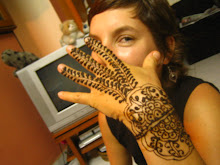
J'ai lu dernierement l'un des plus beaux, droles, emouvants et magnifiques romans que j'ai jamais lus, alors je voulais vous en faire part... c'est Middlesex de Jeffrey Eugenides.
Je l'ai lu en anglais et j'ai entendu dire que la traduction francaise n'etait pas formidable mais bon si vous n'avez pas le courage de le lire en anglais, ca devrait toujours faire l'affaire...
Pour faire court, c'est l'histoire de Calliope Stephanides, née en 1960 à Detroit dans une famille d'immigres grecs, qui se découvre hermaphrodite à l'âge de quinze ans. C'est Calliope/Cal elle-meme qui nous raconte l'histoire de sa famille, de ses grands-parents puis de ses parents pour remonter a l'origine de son cinquième chromosome récessif... Enfin bref, c'est vraiment un tres tres beau livre, du genre qu'on est bien triste d'avoir termine et du style tellement bien ecrit qu'on a envie de le recopier en entier... en voici quelques petits bouts qui, je l'espere, seront plus convaincants que mon petit blabla enthousiaste.
"Emotions, in my experience, aren't covered by single words. I don't believe in "sadness," "joy" or "regret." Maybe the best proof that language is patriarchal is that it oversimplifies feeling. I'd like to have at my disposal complicated hybrid emotions, Germanic train-car constructions like, say, "the happiness that attends disaster." Or: "the disappointment of sleeping with one's fantasy." I'd like to show how "intimations of mortality brought on by aging family members" connects with "the hatred of mirrors that begins in middle age." I'd like to have a word for "the sadness inspired by failing restaurants" as well as for "the excitement of getting a room with a minibar." I've never had the right words to describe my life, and now that I've entered my story, I need them more than ever. "
"To resume my parents' story, I need to bring up a very embarrassing memory for a Greek American: Michael Dukakis on his tank. Do you remember that? The single image that doomed our hopes of getting a Greek into the White House: Dukakis, wearing an oversize army helmet, bouncing along on top of an M41 Walker Buldog. Trying to look presidential but looking instead a little boy on an amusement park ride. (Every time a Greek gets near the Oval Office something goes wrong. First it was Agnew with tax evasion and it was Dukakis with the tank.) Before Dukakis climbed up on that armored vehicle, before he took off his J. Press suit and put on that army fatigues, we all felt - I speak for my fellow Greek Americans, whether they want me to or not - a sense of exultation. This man was the Democratic nominee for the President of the United States! He was from Massachusetts, like the Kennedys! (...) Look at the bumper stickers on all the Volvos. "Dukakis." A name with more than two vowels in it running for President! The last time that had happened was Eisenhower (who looked good on a tank). Generally speaking Americans like their president to have no more than two vowels. Truman. Johnson. Nixon. Clinton. If they have more than two vowels (Reagan), they can have no more than two syllables. Even better is one syllable and one vowel: Bush. Had to do that twice. Why did Mario Cuomo decided against running for president? What conclusion did he come to as he withdrew to think the matter through? Unlike Michael Dukakis, who was from academic Massachusetts, Mario Cuomo was from New York and knew what was what. Cuomo knew he'd never win. Too liberal for the moment, certainly. But also: too many vowels."
"I'm working up with the foregoing to a physical description of myself. Baby pictures of the infant Calliope show a variety of features on the freakish side. My parents, looking fondly down into my crib, got stuck on every one. (I sometimes think that it was the arresting, slightly disturbing quality of my face that distracted everyone's attention from the complications below.) Imagine my crib as a diorama in a museum. Press one button and my ears light up like two golden trumpets. Press another and my stark chin begins to glow. Another, and the high, ethereal cheekbones appear out of the darkness. So far the effect isn't promising. On the evidence of ears, chin, and cheekbones I might be a baby Kafka. But the next button illuminates my mouth and things begin to improve. The mouth is small but well shaped, kissable, musical. Then, in the middle of the map, comes the nose. It is nothing like the noses you see in classical Greek sculpture. Here is a nose that came to Asia Minor, like silk itself, from the East. In this case, the Middle East. The nose of the diorama baby already forms, if you look closely, an arabesque. Ears, nose, mouth, chin—now eyes. Not only are they widely set (like Jackie O's), they're big. Too big for a baby's face. Eyes like my grandmother's. Eyes as big and sad as the eyes in a Byzantine icon. Eyes rimmed with long, dark eyelashes my mother couldn't believe had formed inside her. How had her body worked in such detail? The complexion around these eyes: a pale olive. The hair: jet black. Now press all the buttons at once. Can you see me? All of me? Probably not. No one ever really has.
As a baby, even as a little girl, I possessed an awkward, extravagant beauty. No single feature was right in itself and yet, taken all together, something captivating emerged. An inadvertent harmony was achieved by my irregular features. A changeableness in my expressions, too, as if beneath my visible face there was another, always having second thoughts."
Bonne lecture les amis!
